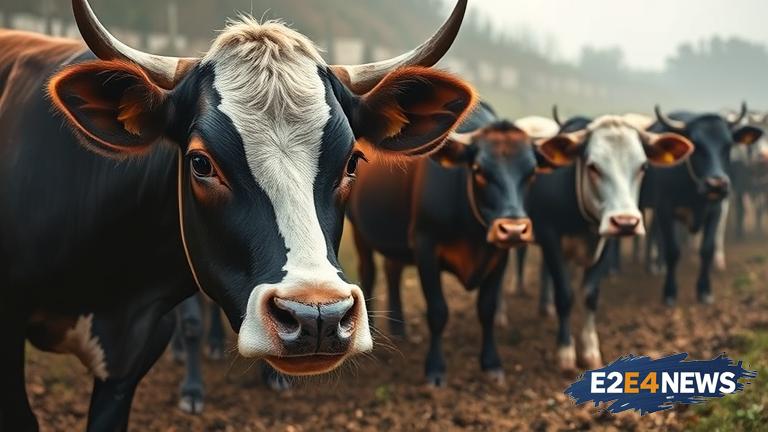A contentious debate has erupted in France over the government’s decision to implement a mass cull of cattle in an effort to contain the spread of a viral disease that has been affecting livestock in the country. The move has been met with fierce resistance from French farmers, who argue that the cull is unnecessary and will have devastating economic consequences for their industry. The viral disease in question is believed to have originated from abroad and has been spreading rapidly across France, prompting concerns about the potential impact on the country’s livestock population. In response, the French government has announced plans to cull thousands of cattle in an attempt to halt the spread of the disease. However, farmers are adamant that the cull is not the solution, citing concerns about the efficacy of such measures and the potential for significant economic losses. The protests, which have been taking place across the country, have drawn attention to the plight of French farmers, who are already struggling to cope with the challenges posed by the viral outbreak. The farmers’ union has been at the forefront of the protests, arguing that the government’s approach is misguided and that alternative solutions should be explored. One of the main concerns is that the cull will disproportionately affect small-scale farmers, who are already vulnerable to economic shocks. The French government has attempted to reassure farmers that the cull is necessary to protect the livestock industry as a whole, but this has done little to alleviate concerns. As the protests continue, the French government is facing increasing pressure to reconsider its approach and explore alternative solutions to the crisis. The European Union has also been drawn into the debate, with some member states expressing concerns about the potential impact of the cull on the EU’s livestock industry. The French government has defended its decision, citing the need to protect the country’s livestock population and prevent the spread of the disease to other parts of Europe. However, the opposition from farmers and other stakeholders has highlighted the complexity of the issue and the need for a more nuanced approach. The dispute has also raised questions about the role of government in regulating the livestock industry and the balance between protecting public health and supporting the economic interests of farmers. As the situation continues to unfold, it remains to be seen whether the French government will be able to find a solution that addresses the concerns of all parties involved. The protests are likely to continue, with farmers determined to make their voices heard and push for a more sustainable solution to the crisis. The French government will need to carefully consider the concerns of farmers and other stakeholders in order to find a way forward that balances the need to protect the livestock industry with the need to support the economic interests of farmers. The EU will also be watching the situation closely, as the outcome of the dispute has the potential to impact the wider European livestock industry. In the meantime, French farmers will continue to feel the effects of the viral outbreak, with many struggling to cope with the economic and practical challenges posed by the disease. The government’s decision to implement a mass cull has only added to the uncertainty and concern, and it remains to be seen whether a resolution can be found that satisfies all parties. The dispute has highlighted the need for greater dialogue and cooperation between government, farmers, and other stakeholders in order to address the complex challenges facing the livestock industry. Ultimately, finding a solution to the crisis will require a nuanced and multifaceted approach that takes into account the needs and concerns of all parties involved.
